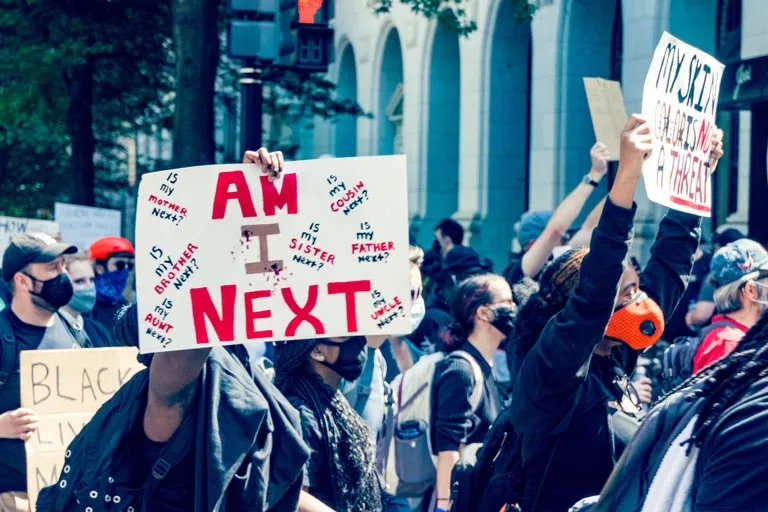
Thousands of violent crime victims and their loved ones descended on the U.S. Capitol to participate in a Crime Survivors Speak March on Washington, reported PBS News KQED.
There are at least 27 violent crimes for every 1000 women and African American women faced the greatest rates of victimization in 2023, according to federal data.
“I’d go to talk to the police captain and I would get blown off, like this is just Black-on-Black crime, and they [the police] shove it under the rug,” said Sabchilnata Parker, who son was robbed and murdered outside a grocery store in Eustis Florida in 2016.
Parker said for the past eight years she’s tried numerous times to check the progress of her son’s murder investigation only to leave with the feeling of being “shunned” by investigators, noted PBS.
This was a common theme at the late fall march. Other march attendees shared that they also felt indifference from the police after being victimized or re-victimized being treated as a suspect by officers.
The march was led by Alliance for safety and Justice, a non-profit organization. The event was organized to combat the country’s “law and order” approach to criminal justice that has disproportionately affected communities of color.
“Some people can be rehabilitated, some people are just mean and evil,” said Karen Spencer-McGee, a 60-year-old survivor of sexual assault and domestic violence. “So there are things that should be punishable. But you cannot address crime without addressing poverty and the mis-education of black and brown people.”
Mothers of victims and survivors of violent crime shared more complicated thoughts on how to address crime punishment versus crime prevention. Participants marched with the goal of securing a new victim rights package rooted in crime prevention 30 years after the original Violence Against Women Act was enacted.
In the early 1990’s, America was drowning in record high violent crime rates. Then U.S. Sen. Joe Biden and other national politicians put forth the Violent Crime Control and Law Enforcement Act of 1994 as a way to curb crime rates.
Black lawmakers rejected the bill based on the assertion that the bill neglected crime prevention and focused on punishment. However, a 1994 Gallup survey revealed 58% of African Americans supported the bill.
Since the bill passed in 1994, it has faced broad scrutiny based on the affect it had on the Black community.
As mass incarceration reached its apex in the early 2000’s, African Americans represented 38% of the prison population, while at the same time representing 12% of the U.S. population.
In 2006, Kamala Harris made her stance on criminal justice clear at a panel she took part in.
“It is a myth to say that African Americans don’t want law enforcement. We do,” said Harris. “We want our grandmothers to be able to walk to church and be safe. We want our babies to be able to walk to the park and be safe. What we don’t want is racial profiling. What we don’t want is excessive force. What we don’t want is to have our civil liberties and civil rights stripped.”
Survivors and mothers of crime victims that attended the march echoed the sentiments of Harris, according to PBS News.
For many years African American voters and public officials have struggled with punishment and how it should be administered in criminal justice, according to PBS News.
A 2022 report by the Alliance for Justice and Safety found that most victims prefer crime responses that focus on rehabilitation and access to things like employment and housing over increasing arrests and time in prison, according to PBS.
“It’s so hard,” said Andrelena Rosser, who lost her son De’Andre Rosser, who was a bystander in a shooting. “I know they have to be punished if they commit a crime, but give them something. A 15-year-old never having a chance or possibility of coming back home — I hate to even think of that.”
Federal research reveals that crimes committed against Black people are less likely to receive news coverage than crimes against White people and are less likely to be solved as well.